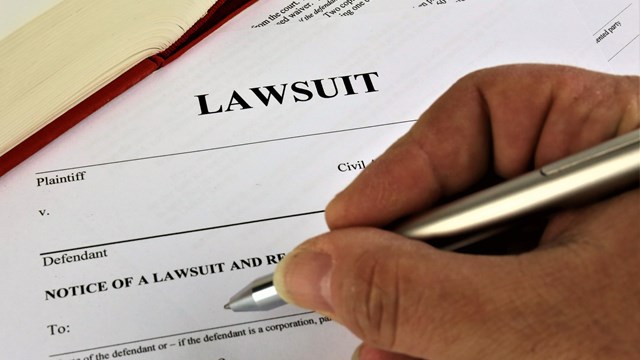One of the biggest political buzzwords of the past 10 years or so is 'transparency.' Transparency in meetings of elected bodies in local and state governments, transparency in the proceedings of both public and private organizations, such as civic groups and churches. The feeling is that the public is entitled to a certain level of disclosure about the inner workings and decision-making processes in an array of organizations.
Inevitably, many people would like to apply the same concept to meetings of co-ops, condos or HOAs. In these cases, the property being managed represents the biggest single investment of the residents who call it home. A lack of open communication can result in these residents’ distrust of the board – but if too much information is divulged, it could violate the privacy of individual residents, or jeopardize important financial negotiations or legal proceedings.
The Legal Angle
Above all, boards and managers must adhere to the letter of the law when it comes to the administrative records they must keep, and how those records may (or may not) be made available to people who ask to examine them. New Jersey has several pieces of legislation governing condominium and homeowners associations and the rights of owners to access the board’s records.
Foremost among these is the New Jersey Condominium Act (enforced by the New Jersey Department of Community Affairs, acting through the Bureau of Homeowners Protection), which stipulates that boards of directors “shall be responsible for the maintenance of accounting records, in accordance with generally accepted accounting principles (GAAP),” which “shall be open to inspection at reasonable times by unit owners. Such records shall include a record of all receipts and expenditures and an account for each unit setting forth any shares of common expenses or other charges due.”
Board members are required to issue annual financial audits produced by independent auditors, not by the Condominium Act, but by the Non-Profit Corporation Act, which also says, according to attorney William S. Singer of the law firm of Singer & Fedun, LLC, based in Belle Mead, “members have the right to see books and records and are able to copy them. Most associations have developed their own resolutions about them—what charges they would make for copies and how much notice has to be given.”
According to a publication addressed to association members by the New Jersey Department of Community Affairs, “A unit owner should keep in mind that except for the records of receipts and expenditures and unit payment records, the law does not establish specific records as GAAP records.” The Condo Act leaves it to individual associations to identify which other financial records should fall within GAAP criteria and therefore be open to inspection under the Act.
Records are kept at the property’s on-site office, if it has one, or in the case of smaller associations, at management’s office. In self-managed condominiums, says Singer, “the governing documents of the association set forth that, say, the duty of the secretary is to keep the minutes and the duty of the treasurer is to keep the financial records.”
Singer notes that “Management is just the agent of the board and there is nothing that management is doing that a board member cannot see.” Indeed, all of the members of the board of directors or board of managers, entrusted as they are by owners to run the business of the association or the corporation, have the right to examine and even copy all of the records on file, with the exception of those regarding any litigation involving that member.
Because the Condominium Act requires condo boards to produce some records for examination by owners, boards should keep close tabs on how good a job their manager is doing in storing the property’s documents. And there is another cogent reason: some records could be essential for an association’s defense in a lawsuit.
Give Me a Minute
Meetings of the board of directors are covered by the Planned Real Estate Development Full Disclosure Act (PREDFDA), which requires that all meetings at which the board takes a binding vote be open to owners, although the owners are not guaranteed the right to participate; just to observe. Written notice must be posted in a prominent place within the community at least 48 hours in advance of an impending open meeting, and the minutes of that meeting must be produced prior to the next open meeting.
The board may hold closed, private meetings when dealing with litigation, personnel actions or to protect an owner’s right to privacy (regarding arrears, for example). But in practice, closed meetings often called by the board to get through the business of the corporation in an efficient manner—perhaps even hold a vote, which they ratify in an open meeting. “They're like workshop meetings,” explains attorney Scott Piekarsky, a principal of the law firm of Piekarsky & Associates in Wyckoff, “where the board says 'Let’s get together and discuss things to get ready for the open meeting.”
While PREDFDA requires the board to record and retain the minutes of open meetings, it has little to say about what exactly those minutes must contain. “As a general rule,” advises another attorney, “they should be prepared in such a way that somebody reading the minutes who did not attend the meeting can reasonably ascertain what business was performed by the board at that meeting.” The minutes, suggests Singer, “should reflect any significant action and votes taken. It doesn’t have to reflect the give-and-take.”
Open Access?
Of course, within the legal framework of a condo, co-op or HOA's home state, boards have some leeway to set their own policies—and make them somewhat more liberal, in the name of that all-important transparency, and good community relations in general. Recordkeeping is another matter that varies state-by-state, and jurisdiction by jurisdiction.
According to the New Jersey Condominium Act, unit owners are not allowed complete access to all board documents. Mary Barrett, a shareholder attorney in Stark & Stark’s Community Associations Group in Lawrenceville, lays out the parameters for unit owners under the law: “If the association is a nonprofit corporation, the members of the association have a right to inspect certain books and records, pursuant to the New Jersey Nonprofit Corporations Act,” she says.
“Homeowners of all community associations have the right to review minutes of open board meetings pursuant to the New Jersey Condominium Act. An association's governing documents may give further rights of inspection by members. Boards and property managers who are unsure what records can be viewed should consult with the associations lawyer before permitting inspection by homeowners,” says Barrett.
Don’t Take Them Home
So, your building or HOA keeps pristine, letter-perfect records, meeting minutes, financial documents, legal and business correspondence, and shareholder/unit owners’ information. But where are all these important documents physically stored? According to most legal and management experts, they’re kept at the management office, regardless of whether the building is self-managed or employs a professional management company.
In the digital age, of course, the web also comes into play. As attorney Eric Goidel, a senior partner of the law firm of Borah, Goldstein, Altschuler, Nahins & Goidel, P.C. in New York City says, “Many cooperatives and condominiums have set up website portals which are password-protected for residents where the boards can load up important documents, such as minutes of the annual meeting, minutes or highlights of board meetings, bylaws, the proprietary lease and house rules for a cooperative; and the declaration, bylaws and rules and regulations for a condominium.”
One place where documents shouldn’t be stored, however, is in individual board members’ apartments—although, at times, a board member can take a copy of a document home with them if they’re trying to resolve an issue.
The reason for this is that board members hold political positions, and if individual board members are keeping important or confidential documents in their own apartments, it could give the impression of impropriety, or lead to charges of partisanship. For the sake of neutrality and prudence, legal pros strongly advise keeping any and all official association documents and paperwork in a central, nonpartisan location.
Who Has the Most Access?
Now, who among the board has unfettered access to the building’s important documents and residents’ personal information? Is it the board president, the treasurer, the managing agent?
Documents pertaining to the association as a whole are available to board members as a matter of law. Depending on the development, most are available to shareholders as well, as we’ve mentioned.
Experts warn that individual shareholder files, which may include the shareholders’ financial records, employment records and records of conflicts with neighbors, are treated as confidential, although the property manager will likely have access to them. According to another legal pro, “Any document that may be too sensitive should be placed with the building’s attorney. I have a bunch of these type of documents concerning crazy things like video tapes of sex in the Pilates room caught on camera, and so forth.” Clearly, that kind of content has no business being anywhere but under lock and key.
While shareholders or unit owners can have access to documents, Goidel cautions, “Access to records should not be unbridled, and shareholders or unit owners should not be allowed to abuse the privilege or monopolize the time of the managing agent or board members. Reasonable time, place, and manner of restrictions can be established.” For example, a shareholder shouldn’t be allowed to come to the management office without notice with a list of 55 documents he wants to see, while 10 people are waiting in back of him.
Goidel adds that “While shareholders and unit owners can take notes [on document content], they should not necessarily be allowed to make photocopies of documents, or even take pictures of documents on their handheld devices.”
Depending on the circumstance, some buildings or development will print out copies of documents for residents upon request. In general, the board can make these types of rules, provided that the relevant provisions of the law and the association’s own governing documents are also adhered to.
Protecting Information
Clearly the issues of board transparency, board-member access to records and resident access to the same records are complicated ones. It’s important to stay within the law, protect the privacy of unit owners, and not compromise bidding processes or legal proceedings. At the same time, however, the more open a board is, the more it will get the respect of the building’s residents.
In the final analysis, legal and management pros agree that open and honest communication is generally a board's best policy. Residents want to be kept abreast and informed of board decisions that have an impact on the community and the building. However, boards should be careful with disclosing information that may single out individual owners or information that may be cause for tension within the community. Boards must balance between a level of transparency that satisfies the owners and the utility and consequences of any information released to owners.
Ranaan Geberer is a freelance writer and editor and a frequent contributor to The Cooperator.










Leave a Comment